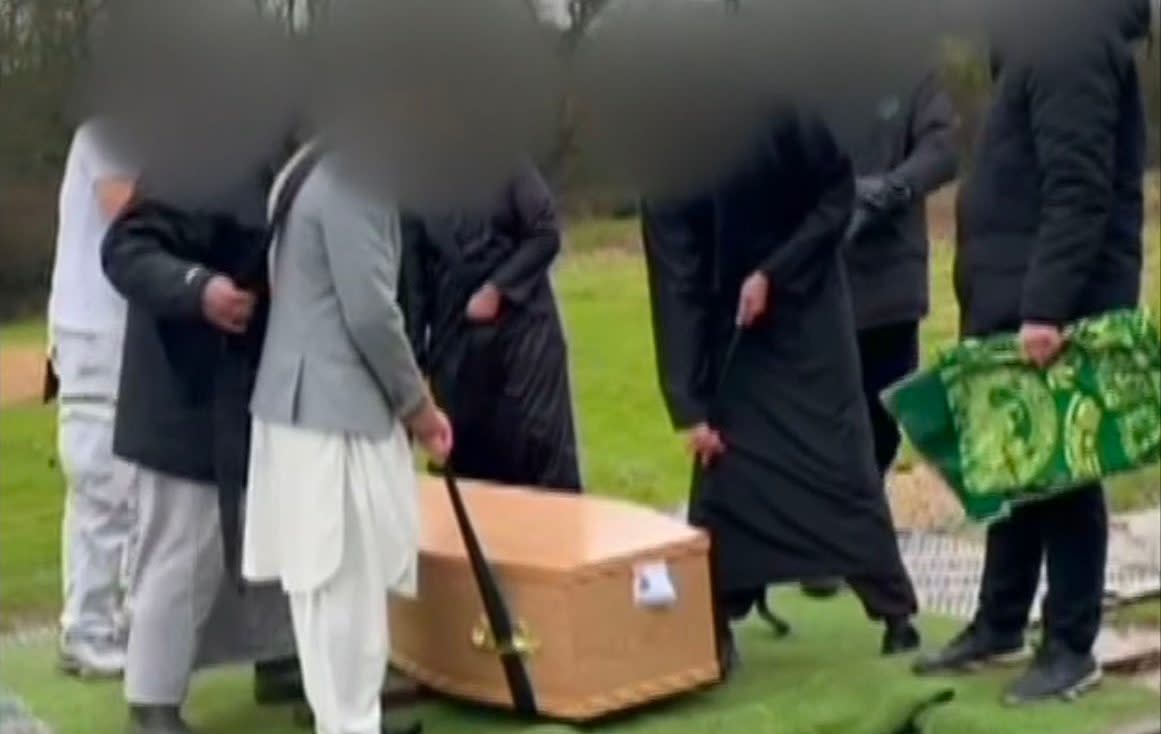Clapham chemical attacker given Muslim burial despite conversion to Christianity

The Clapham chemical attacker was given a Muslim funeral and burial despite converting to Christianity to claim UK asylum.
Abdul Ezedi, an Afghan national, had been at the centre of a manhunt after attacking a 31-year-old mother and her two daughters with a corrosive substance in south London in January.
Immigration files published on Tuesday showed the convicted sex offender had twice been refused asylum by the Home Office.
But, when he later insisted he had converted to Christianity and obtained the endorsement of a Baptist priest he was granted leave to remain.
The dossier showed he had repeatedly failed to answer basic questions about Christianity, lied about his past and was deemed such a sexual threat that a special worshipping agreement was put in place for him to attend a church in Jarrow, South Tyneside.
Recommended
Churches risk undermining asylum system after Clapham attacker's conversion, says Home Office
It is now understood that Ezedi’s family and friends requested that he should be given a Muslim funeral and burial after his body was found in the River Thames in February. It raises the prospect that those closest to him did not believe he had abandoned his Muslim faith.
The Telegraph revealed in February how he was known in Newcastle, where he lived, to be a devout Muslim who observed Ramadan and only ate Halal food.
His funeral was conducted by a mosque in west London, and he was given a Muslim burial at a cemetery in east London on March 11, the BBC has claimed. He is not thought to have been known to the mosque which buried him.
The Muslim funeral director, who did not want to be named, told the broadcaster: “As a funeral directors, we don’t look into people’s past, we look at how we can help in a situation.
“Our job was just to provide a dignified burial for the deceased.”

The BBC claimed some worshippers, many of whom had an Afghan background, said Ezedi had not been a worshipper there.
The mosque, which often conducts funerals for asylum seekers who die alone, asks for donations from regular worshippers to help with costs.
But when it asked for contributions in Ezedi’s case, some people were said to have been upset.
One worshipper, who did not want to be identified, said Ezedi, 35, had “attacked innocent people” and converted to Christianity, adding that it was “the responsibility of the church to bury him according to his new belief or religion, not the mosque”.
The newly released immigration papers show his conversion and his baptism at Grange Road Baptist Church in Jarrow had been pivotal in persuading a tribunal judge to let him stay.
However, the Home Office opposed the decision pointing out Ezedi had been unable to explain the reasons for his conversion or demonstrate a clear understanding of Christian principles. Asked what the Old Testament was about, he replied: “Jesus Christ.” He also claimed Jacob was one of the Apostles.
Asked what God was believed to have created on the third day, he answered: “Good Friday and Easter Sunday and Resurrection Day.”

Home Office officials told the tribunal they believed Ezedi was prepared to “use religion for his own ends” in order to secure asylum.
However, Judge O’Hanlon, the immigration judge, said in 2020 that although Ezedi had lied in other aspects of his claim, that did not “automatically mean that his evidence in relation to his claimed conversion could not be believed”.
He wrote in his judgment that he found the “most compelling evidence” had come from Reverend Roy Merrin, the then ministry team leader at Grange Road Baptist Church in Jarrow, who said he had known Ezedi for four years and that he attended church regularly.
The priest told the hearing he was “aware of people who fraudulently claimed conversion with ulterior motives in relation to asylum but did not consider the appellant (Ezedi) was such a person”.


